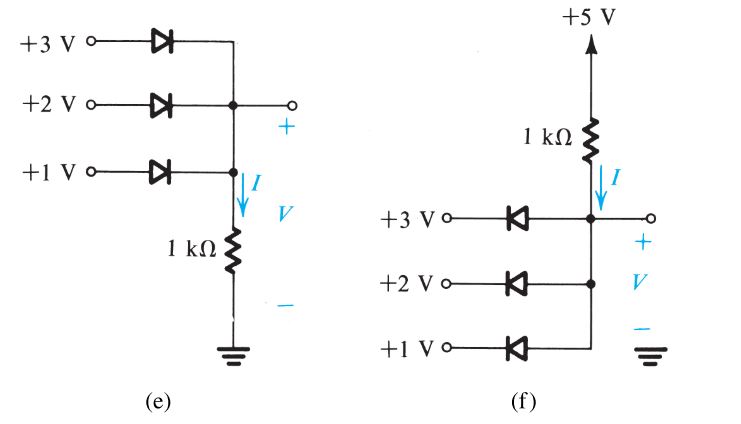Find voltage V and current I. As per booksthe book, answer is (e) 3 mA, +3 V; (f) 4 mA, +1V . But I don't know how we got there.
Edit: For figure (e):
I understand that diode connected to +3V supply will be forward biased because the anode of this diode is connected to maximum positive voltage in the circuit. But, I don't understand why diodes connected to +2V and +1V is reverse biased.
For figure (f):
Diode connected to +1V supply is forward biased because cathode of this diode is connected to least positive voltage in the circuit.But, I don't understand why diode connected to +2V and +3V is reverse biased.

